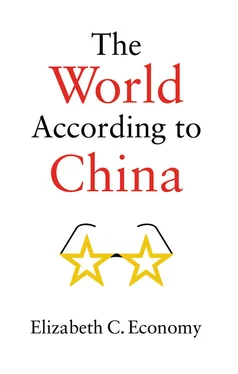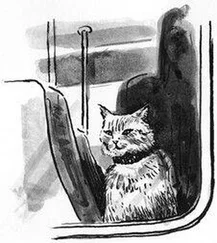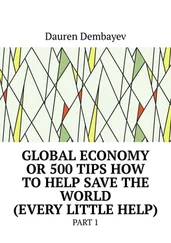Despite limited medical evidence as to the benefits of TCM for treating COVID-19, Xi instructed Chinese hospitals to prescribe it as part of their COVID-19 treatment protocol. 50He also pushed the distribution of TCM and TCM medical specialists through the HSR and advertised its usefulness in pandemic treatment on Chinese embassy websites. At the same time, Chinese-based international professional associations lobbied the United Nations to formally recognize the value of TCM in responding to COVID-19. 51
While the world lauded China’s leadership in providing PPE, much of the goodwill Beijing earned evaporated as Chinese officials began to adopt a more coercive and combative form of diplomacy colloquially referred to as “wolf warrior diplomacy.” The latter term reflected the tag line from the second of two Chinese blockbuster Wolf Warrior movies in which elite Chinese forces triumph over foreign mercenaries and others: “Even though a thousand miles away, anyone who affronts China will pay.” 52The same diplomats who had earlier requested that other countries not advertise their assistance to China now trumpeted their provision of PPE to these same countries and insisted on public displays of gratitude. While Italian prime minister Guiseppe Conte complied, others, such as German chancellor Angela Merkel, stressed the two-way nature of pandemic assistance: “The European Union sent medical equipment to China [when] China asked for help at that time. What we are seeing here is reciprocity.” 53The wolf warrior diplomats also weaponized the country’s control over PPE and access to China’s vast market to try to coerce countries into aligning their interests with those of China. China reportedly told France that ample PPE would be forthcoming if the latter bought Huawei 5G equipment. And when Australian prime minister Scott Morrison called for an investigation into the origins of the virus in April, China’s ambassador to the country suggested it would pay a steep economic price: “[M]aybe the ordinary [Chinese] people will think why they should drink Australian wine or eat Australian beef.” 54Shortly afterward, China banned Australian beef imports and placed tariffs on Australian barley, following this up in fall 2020 with bans on Australian coal and wine, as well as recommendations to Chinese tourists not to travel to Australia. 55
Chinese foreign affairs officials and the media also tried to deflect attention from China’s role in the pandemic by spreading disinformation about other countries’ management of it. Ministry of Foreign Affairs spokesman Zhao Lijian tweeted: “It might be the US army who brought the epidemic to Wuhan. Be transparent! Make public your data! US owe [ sic ] us an explanation!” 56The Chinese embassy in Paris published an article on its website claiming that French healthcare workers had abandoned their jobs in nursing homes and left the residents to “die of starvation and illness.” And at one point, a number of Chinese media organizations and government officials tweeted out a video that purported to show Italians chanting “Grazie, China,” with China’s national anthem playing in the background. It later emerged that the Italians were cheering for their own healthcare workers. 57
Chinese foreign minister Wang Yi explicitly encouraged such diplomatic hardball, claiming: “We never pick a fight or bully others. But we have principles and guts. We will push back against any deliberate insult, resolutely defend our national honor and dignity, and we will refute all groundless slander with facts.” 58While such nationalistic rhetoric had its supporters within China, it came at a steep reputational cost outside the country. International media coverage portrayed Beijing’s mask diplomacy as bullying, and foreign governments lost faith in China as a reliable source of PPE. Concern over Chinese-manufactured PPE was also compounded by widespread reports of substandard products. Health officials in Spain, the UK, Turkey, the Philippines, the Netherlands, and Finland, among other countries, complained that the Chinese masks lacked adequate filters, testing kits were inaccurate, and disinfectants were fake. 59The Netherlands alone recalled 600,000 faulty Chinese-made masks. In the wake of both the quality issues and the coercive nature of Beijing’s mask diplomacy, countries began to discuss the need to reorient their supply chains away from China.
A Friend in Need Is a Friend Indeed
Over the course of the pandemic, the WHO emerged as a critical ally for Beijing. The head of the WHO, Tedros Adhanom Ghebreyesus, whose candidacy Beijing had championed, consistently downplayed the potential threat of the virus and any Chinese responsibility for its spread. Even after the WHO formally declared the COVID-19 outbreak a Public Health Emergency of International Concern, Tedros stated that the designation “was not issued because of what is happening in China, but what is happening in other countries.” Moreover, in a January 30 news conference, he reiterated his opposition to limiting either trade or travel to China, despite the fact that there were 17,238 confirmed cases and 361 deaths in China as well as 151 confirmed cases and one death in 23 other countries. 60During a brief trip to China the week before, Tedros had even lauded Beijing’s actions: “We appreciate the seriousness with which China is taking this outbreak, especially the commitment from top leadership, and the transparency they have demonstrated, including sharing data and [the] genetic sequence of the virus.” 61
The WHO had earlier deferred to China’s wishes on naming the disease. 62The organization acknowledged privately that China did not like the name – SARS-CoV-2 – selected by the official study group of the International Committee on Taxonomy of Viruses (likely because it reminded the world of China’s role in the 2003 SARS outbreak). 63More significantly, the WHO also respected Beijing’s wishes by refusing to allow Taiwan to participate in WHA briefings unless it adopted Beijing’s preferred name for it: Chinese Taipei.
China’s influence in the WHO, perhaps surprisingly, is not the result of a substantial financial contribution to the organization; the country contributes less than 1 percent of the organization’s budget. It is, however, deeply integrated into the WHO politically: a Chinese official holds a seat on the governing board and a second is in charge of overseeing the organization’s work on communicable and noncommunicable diseases. China is also viewed as a very important partner in developing public health programs for the Global South. 64And Tedros has been an outspoken supporter of Chinese initiatives. Speaking at the August 2017 “High-Level Meeting for Health Cooperation: Towards a Health Silk Road” in Beijing, he applauded the HSR as the “groundwork for essential health services needed to ensure universal health care.” 65
The WHO’s unreserved support for Beijing throughout the pandemic raised alarm bells in other countries over undue Chinese influence. According to one public health expert, Tedros avoided criticizing China for fear of losing access to critical information. Other WHO staffers, however, were less reticent. Australian professor John Mackenzie asserted that China had tried to hide cases during the first weeks of the outbreak. 66He leaked recordings of internal WHO staff meetings that revealed consensus among many staffers that China was not sharing information in a timely manner. In particular, Beijing only released the gene sequence after a lab in Shanghai had already published it on a virologist website. (It later emerged that one Chinese lab had sequenced most of the genome as early as December 27, a full two weeks before it was released to the public.) In addition, the WHO’s chief of emergencies, who had praised China publicly, claimed in an internal meeting that China was not cooperating the way other countries – such as the Democratic Republic of the Congo – did during the Ebola outbreak. 67
Читать дальше












